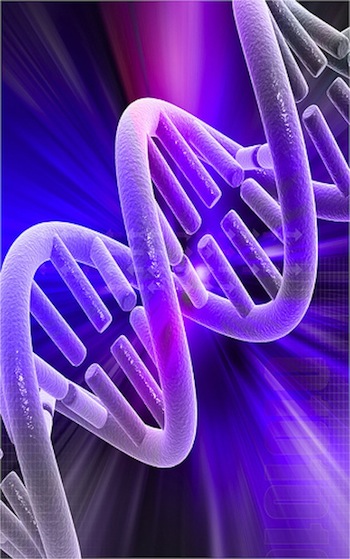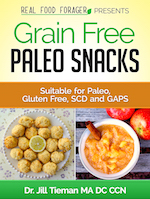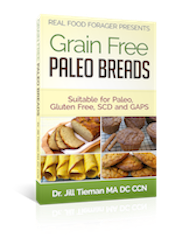Epigenetics is a term used to describe hereditary changes in gene function that does not involve a change to the genome or the actual genes. In the 1940s, Conrad Waddington recognized that there was a strong interaction between genes and the environment. The implication of this is that you can inherit traits from your parents but this has nothing to do with the actual genes — it is a function of your environment.
Understanding the genetic code
For many years, the paradigm in scientific research was that scientists would crack the genetic code so that every disease could be linked to its gene, and then drugs could be created to modify those genes — eliminating the disease. It turns out to be much more complicated than that.
Scientists have finished mapping the human genome, yet chronic disease is on the rise. Despite advances in medicine, life expectancy in United States is predicted to decline in the 21st century, according to an article in The New England Journal of Medicine in 2005.
What is epigenetics?
Epigenetics is a process in which a gene directs the making of a protein and that protein changes the cell environment, ultimately altering the way the gene is read.
Epigenetic changes occur when DNA makes proteins, and then those proteins change a cellular environment, causing alteration in genetic function. But, what is the mechanism by which this occurs?
DNA Methylation
DNA methylation is probably the most well-studied mechanism for epigenetic change.
Methylation typically results in the silencing of a gene. Under-methylation typically results in the activation of a gene. Not to get into too much biochemistry — suffice it to say that DNA methylation changes the three-dimensional folding of DNA which can affect its readability.
Influencing epigenetic changes
We can influence epigenetic changes through pharmaceuticals, lifestyle choices and through diet. The goal is to increase methyl donors such as methionine and choline, as well as the cofactors in methyl metabolism such as folic acid, B12 and pyridoxyl phosphate (a precursor of B6).
Critical periods of epigenetic impact
There are a number of key periods for epigenetic influence. The first occurs during preconception, because this is when the sex cells of the next generation are forming.
The second is during fetal development.This is when there is rapid stem cell differentiation and in females, the development of the egg cells.
The third occurs before and during puberty –most importantly in males as this is when the sperm cells mature.
Essential nutrients during preconception
Folic acid, B12, iron and zinc all have influences on epigenetics, because they interact with methylation. Vitamins A, C, E and selenium are critical because they offer protection from oxidative damage to DNA. Omega 3 fatty acids and Vitamin D are important as well.
Where to get these essential nutrients for preconception
The amino acid methionine is the best methyl donor around. It may be consumed in foods such as eggs, beef liver and to some extent in green vegetables. Choline, iron and zinc may also be found in the above foods.
Vitamins A and D as well as omega 3’s are found in fermented cold liver oil.
Does this sound familiar?
Every culture that Dr. Weston Price studied, had sacred foods that supplied these critical nutrients for preconception and beyond. Liver and other organ meats, eggs, butter, bone marrow, seafood and cod liver oil all contain these crucial nutrients.
Traditional peoples knew they had to eat these sacred foods in order to have a healthy baby — what they may not have known is that the future generations also depended upon these foods for good health. That is what we now understand with the new science of epigenetics.
Prenatal Influences
Clearly, maternal nutrition is important as far as macronutrient intake, gestational blood sugar and for some, getting enough food.
Environmental factors include exposures to toxins such as phthalates, xenoestrogens, cigarette smoke and alcohol.
Emotional factors include stress and anxiety during pregnancy.
All of these things will affect the growing fetus as well as the next generation because the eggs in the fetus are affected as well. Animal studies have shown that up to seven generations may be affected by these exposures.
Does this sound familiar?
Pottinger researched generations of cats and Price studied generations of humans and both concluded that preconception nutrition, prenatal and postnatal nutrition is vitally important in maintaining health and passing it along to the next generation.
What they didn’t know, is that there is a molecular explanation for their work.
Endocrine disruptor during pregnancy: BPA
BPA is one of the most ubiquitous environmental toxins today. This study published in Nutrition Review in 2008,with Agouti mice showed that the mice exposed to BPA developed into yellow, obese mice more frequently. Could this be related to the obesity epidemic we have today?
It turns out that these mice had less methylation and less regulation after exposure to BPA. Methylation was consistent throughout the mouse’s body, suggesting demethylation occurred in early development. Ultimately, BPA was shown to remove methyl groups from DNA.
This study published in Cancer Research in 2006 in humans showed that women exposed to BPA during pregnancy had offspring with lower methylation and this increased the risk of prostate disease and cancer as adults. The researchers concluded that,
… the present findings provide evidence that developmental exposure to environmental endocrine disruptors (bisphenol A) and natural estrogens impacts the prostate epigenome during early life,which suggests an epigenetic basis for estrogen imprinting of the prostate gland…
Xenoestrogen Exposure
This study published in Environmental Health Perspectives in 1995 found that gestational and lactational exposure of rats to xenoestrogens results in reduced testicular size and sperm production.
This study published in Endocrinology in 2012 showed that exposure to endocrine disruptors induced epigenetic transgenerational adult disease.
Environmental endocrine disrupting chemicals (EDCs) are defined by the U.S. Environmental Protection Agency as “exogenous agents that interfere with the synthesis, secretion, binding, action, or elimination of natural hormones in the body that are responsible for the maintenance of homeostasis, reproduction, development, and/or behavior.”
In this study published in Endocrinology in 2006, the endocrine disruptor vinclozolin induced epigenetic transgenerational adult-onset disease. The researchers concluded that,
The observations demonstrate that an environmental compound, endocrine disruptor, can induce transgenerational disease states or abnormalities, and this suggests a potential epigenetic etiology and molecular basis of adult onset disease.
Declining Fertility
This book published in 1996, discovered the first evidence for adverse effects of endocrine disrupting chemicals (EDCs) on wildlife .
In humans, this study published in the British Medical Journal in 1992 showed trends in reproductive system abnormalities such as declining sperm counts, cryptorchidism, and hypospadias.
Clearly, prenatal exposure to these potent endocrine disruptors will affect adult fertility.
Sound familiar?
Pottenger and Price predicted that decreased fertility would be one of the first markers of the displacing foods of modern commerce along with the myriad of health problems we have today.
Just another reason to join the real food movement — protect your children and your children’s children. Eat real food and avoid toxic exposures as best you can.
What are you doing to ensure your family gets some of these sacred foods? Leave a comment and let me know!
Related articles
Sacred Foods for Preconception Birth and Beyond
Wisdom of the Children
Cod Liver Oil: Superfood











